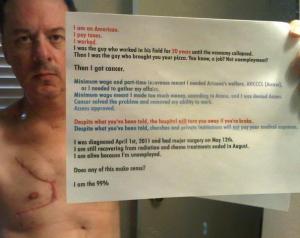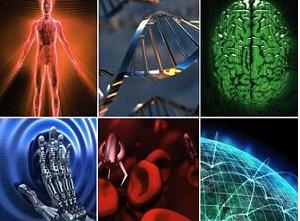About a year and a half ago, as I began to read into the long history behind the Epidemiology movement and the Evidence-Based Medicine debates, I told my husband that the real problem was not that we were too empirical (which is what many argue is wrong with EBM philosophy). I argued that our problem was that we have been ascribing god-like powers to a test, which in all actuality, tells us almost nothing about the human body, the way it works, and how it’s affected by intervension. The test I’m referring to is the Randomized Control Clinical Trial (RCT).
Although Epidemiology was not in any way founded on RCTs, the field quickly moved to argue that, for clinical and policy purposes, decision making should be primarily informed by double-blind epmirical trials in which a large, diverse group of people (think thousands) takes a particular drug and is monitored over a long period of time for particular results; that group is then compared to a large contol group, who takes a plecibo. The results of these studies indicate the general effects of a drug, what it does and doesn’t accomplish based on its goals, and weather it’s safe enough to hit the market. The trial also shapes how the drug will be marketed, to what group, and with what exceptions, potential side effects, etc. The same process applies to new forms of medical technology, tests, treatments, and interventions.
The long standing criticisms of RCTs are fairly consistent:
1) They can only measure what they set out to measure. If they want to see if a drug lowers blood pressure, they measure blood preassure. They don’t measure how blood pressure and the drug, interacts with each patient’s diet, their history of smoking, the fact that they mothered x amount of children, or have a predisposition to breast cancer. That would take way too much money and more data collection than is reasonable a trial. As a result . . .
2) Trial results have to make massive generalizations which don’t account for the innumerable varieties of reactions and interactions people experience physiologically and otherwise while on the tested drug, and dozens of other drugs.
3) Most tests are conducted by companies trying to sell a product; this means that pharmaceutical companies conducting studies have an incentive to ignore unfavorable information and isolate data and results which will ensure their product sells.
4) They test interventions; they don’t actually study how the body works. Yes, taking a pill is one way to fix something. But figuring out how complex systems interact to predispose a person to a disease might be more productive. caveat: Although much research is dedicated to how the body works, at the moment, RCTs only allow us to test a few correlations at a time–eg: the correlation between sodium intake and obesity; NOT not all the various factors which have contributed to various individual’s obesity throughout the nation.
5) Clinical Trials don’t help doctors make decisions. This has been the major complaint of those who founded the field of epidemiology in the first place (Daly). The incredibly generalized results of RCTs don’t necessarily help a doctor decide if a particular drug or test will help their particular patient. They DO help narrow the playing field (75% of the time, Drug x works better than Drug y; but Drug y is much cheaper); but the complexity of each patient is so extreme, that doctors really need more detailed information than RCTs can offer–and that usually only comes with experience (eg: historically, I have found that patients who take drug x and are also on antidepressant y, have problems with impotence, which causes them to stop taking drug x after so many weeks, before the treatment takes effect. Therefore, treatment z will probably be better for them because they’re most likely to complete the treatment).
Back to my story.
What I told my husband that day when I was beginning to process all this information was this: we need to revolutionize the way that we’re doing medical research.Rather than isolating particular questions and testing for a few correlations cut off from all other factors, we should be finding ways to do massive data collection about the detailed intricacies of the body, and mapping that data for patterns and coorelations within particular patient populations.
We need to use complex, convenient monitoring systems which will track hundreds of thousands of minor reactions and systems in the human body on a moment by moment basis, as people function within their own environments; and then–utilizing the storage and data-analysis technologies used by search-engines to navigate oceans of information on the internet, and the super computers which perform calculations humans can’t even attempt–we should be looking for patterns in that data which explain how individual’s physiological system’s work, how diseases develop, and in what conditions.
We cold take a huge sample of subjects form a single population with a disease like prostate cancer, or living in a particular area, or with a particular medical history, and monitor their physiology for however long seemed necessary, looking for what they have in common, and what they don’t. That’s how we should be doing research.
Considering what technology has accomplished over the past few decades, and looking to what potential the future holds, RCTs honestly look like something out of the stone age. We could be doing so much better. The key is combining complexity, technology, and, well, lots and lots of money.
I was thrilled, today, to find that there is a doctor who has been making the exact same argument. 
One of the top ten most cited researchers in medicine, and Professor of Genomics, the Scripps Research Institute, Cardiologist and Geneticist Eric Topol has the support of medical institutes, philosophers, medical educators, policy makers, research laboratories, technicians, politicians, clinicians, and me. His book, The Creative Destruction of Medicine: How the Digital Revolution will Create Better Health Care(Jan 2012) imagines a future in which the technologies we have devloped for personal and commercial use will be used to understand physiology in a way “that will make the evidence-based state-of-the-art stuff look” primitive,
“. . .by bringing the era of big data to the clinic, laboratory, and hospital, with wearable sensors, smartphone apps, and whole-genome scans providing the raw materials for a revolution. Combining all the data those tools can provide will give us a complete and continuously updated picture of every patient, changing everything from the treatment of disease, to the prolonging of health, to the development of new treatments.”
He specifically suggests how existing medical and information technologies can be used and further developed to achieve a new level of health research:
“At home brain-monitors helping us improve our sleep. Sensors to track all vital signs, catching everything from high blood pressure to low blood sugar to heart arrhythmia without invasive measurements to inconvenient and nerve-wracking—or even dangerous—hospital stays (which kill some 100,000 every year, due to infections caught there, or patients getting someone else’s medicine). Improved imaging techniques and the latest in printing technology are beginning to enable us to print new organs, rather than looking for donors. Genetics can reveal who might be helped by a drug, unaffected by it, or even killed by it, helping avoid problems as were seen with Vioxx.”
I was also pleased to find that Topol addresses some of the major problems that will accompany future technologies, such as privacy and protection issues, genetic planning decisions, and the potential for depersonalized care. However, he also emphasizes the potential for individuation and personalization that these technologies could bring to clinical care, as well.
A few prememtive clarifications
Many in the medical and scientific humanities would point to my enthusiasm as reinforcing the, “science just needs to be better” philosophy in which empiricism is the  answer to everything; the belief that if we just measured a little closer, controlled nature a bit better, we could master it and all our problems. That is not what I believe. On the contrary, I believe that the more humans stand in awe of natural creation–in which we ourselves beautifully and mysteriously embedded–the more we will realize that we can never control it, and the more we will desire to understand it better. As a vitalist, new materialist, and complexity theorist, I believe that empiricism has been based on the concept that our world is linear, strait forward, simple, and masterable. I believe that methods such as the ones I’ve described here acknowledge the fact that this is not the case–that there more more connections, interactions, and vital processes than we could ever imagine or count, but that they are worthy of our attention and investigation all the same.
answer to everything; the belief that if we just measured a little closer, controlled nature a bit better, we could master it and all our problems. That is not what I believe. On the contrary, I believe that the more humans stand in awe of natural creation–in which we ourselves beautifully and mysteriously embedded–the more we will realize that we can never control it, and the more we will desire to understand it better. As a vitalist, new materialist, and complexity theorist, I believe that empiricism has been based on the concept that our world is linear, strait forward, simple, and masterable. I believe that methods such as the ones I’ve described here acknowledge the fact that this is not the case–that there more more connections, interactions, and vital processes than we could ever imagine or count, but that they are worthy of our attention and investigation all the same.
Lastly, and perhaps most importantly, I don’t want to ignore the serious ethical and social problems that litterally flood my mind as I consider future directions in medical technology. The fact that technology, medicine, and research are so largely privatized and commercialized obviously has difficult implications. History suggests that human social complexity necessarily includes corruption, error, over-confidence in human ability, greed, race, class and gender stratification, and oppression; innovation and power, network into nodes which disadvantage the majority of the human population. I don’t believe that science has the power to, or will solve, all our greatest needs and problems. I do think, however, that human innovation is remarkable and should be developed–with as much ethical contemplation, caution, and will toward justice as possible. Even philosophers have a part to play in the network formations of the future.
